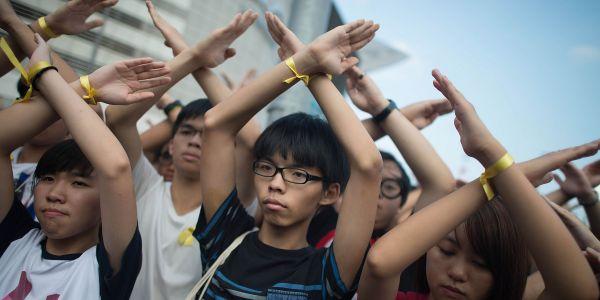In late 2009, President Obama arrived in Asia for the APEC summit as the U.S. economy was grappling with the repercussions from the financial collapse the year before. Still relatively new to his job as President of the United States, Obama arrived optimistic, and his promise of an American "pivot" to Asia largely defined the gathering.
Today, five years later, our beleaguered president arrives in Myanmar with a greatly improved economy back home, yet substantially less political capital to use to his advantage, and arguably more geopolitical concerns than the international arena has seen since perhaps the Cold War. The crisis in Ukraine earlier this year has caused a rift in U.S.-Russian relations, which will have ripple effects most certainly seen throughout Asia and especially in China; protests in Hong Kong have again brought attention to what has been at best a questionable human rights record for China; and the matter of the American "pivot" to Asian has yet to be resolved, but may see progress with more agreement on the Trans-Pacific Partnership (or TPP). President Obama will have to remain disciplined in his approach to these issues and others, and strike a precarious balance between hard-line tactics and a more reserved, diplomatic strategy.
When President Obama speaks of the "pivot" to Asia, there is a common retort from officials in Russia: We are already there. Whereas a true rebalancing of the American projection of power would have paid quick and plentiful dividends five years ago, today is different. Perhaps the most significant repercussion to come from the crisis in Ukraine is it has pushed Russia and China as close together as they have been since the early Cold War years. A multi-billion dollar natural gas deal between the two countries that had been stuck in limbo for years was suddenly brought to the table and finalized expeditiously, easing Russia's reliance for natural gas exports away from Europe and providing China with nearly 20 percent of their natural gas needs for the next several years. In fact, it is a trade deal so large that it will effectively replace Germany with China as Russia's largest natural gas partner.

Militarily speaking, a projection of power in Asia is also simply less feasible today than it was years ago. Where we saw the winding down of wars in the Middle East at the last APEC gathering, this week's gathering comes just after more troops have been approved for deployment in Iraq. The fight against ISIS will continue to escalate in coming weeks (if not months), and these developments will hinder military influence elsewhere in the world.
On the economic side of the "pivot", implementation of the TPP is an equally significant obstacle. While 12 nations have participated in TPP negotiations over the years, China has not been one of them. Instead, China has been advocating for an alternative trade partnership, known as FTAAP, or Free Trade Area of the Asia Pacific. Should China prevail over the U.S. in securing a new trade partnership, combined with Russia's increased exports to the region, it would effectively eliminate any possibility of an increase in American influence in the region. The United States remains a major trade partner with many of the countries in Asia, but it will not have much opportunity to expand on those partnerships without the TPP being signed.

While these issues remain at the forefront for the next week, President Obama will also have to express cautious support for Hong Kong protestors and find a way to urge Chinese leaders not to use violence as a means of bringing an end to the protests. And while the Hong Kong protests have been making headlines for the past several months, they are certainly not the only matter of dispute in the region. Arguments over many islands have been simmering, as well as other territorial disputes that could erupt into larger conflicts at any time. President Obama must be careful to remain on the sidelines of these issues, while influencing decision-making and keeping things deescalated.
Much has changed in the past five years since President Obama last convened with Asian leaders at the APEC summit, and he will undoubtedly have a more challenging time accomplishing items on his agenda this time around. However, at the same time, the stakes are much higher. President Obama must be pragmatic in his approach to tackling these objectives, while preserving what are already tenuously positive relationships with major powers like Russia and China.





